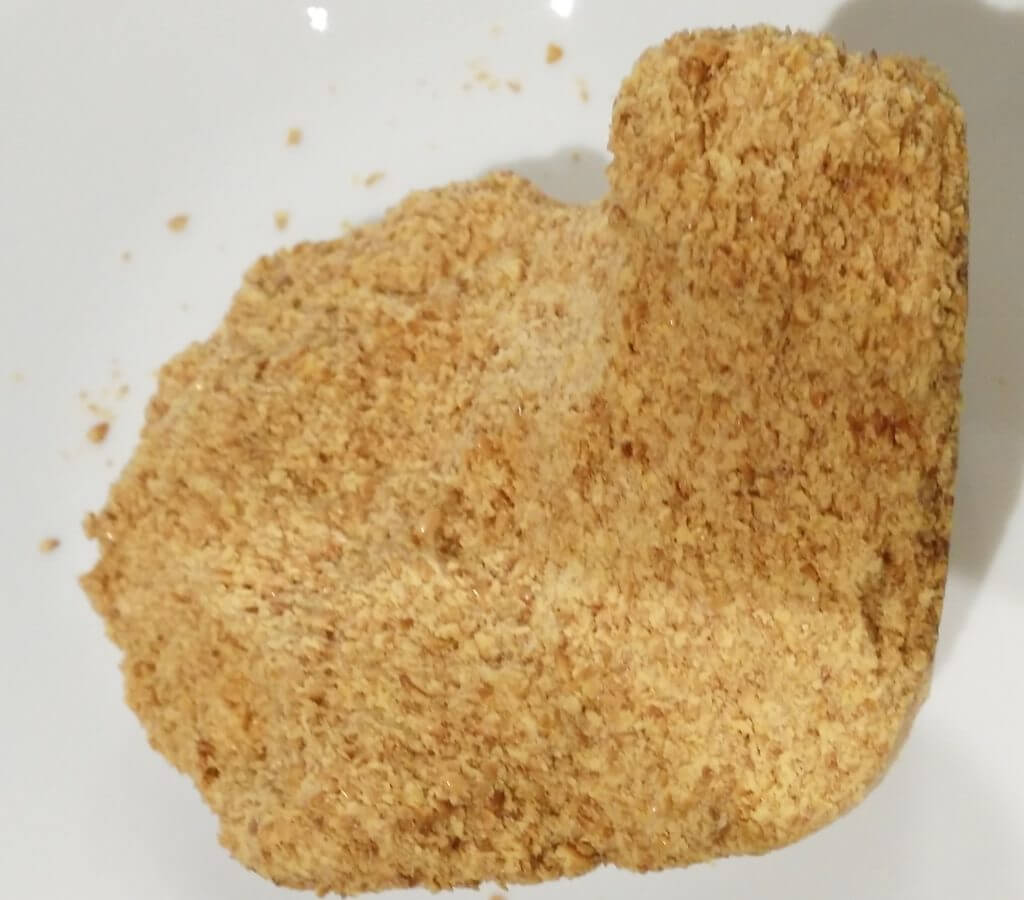The short answer is that yes, flaxseed can cause gas! Typically, it’s not excessive, but in some people it’s worse than others.
There are a couple of ways this can happen, I’ll go through each one quickly.
If none of these seem like the cause of your gas, it could be something else in your diet.
Table of Contents
How Is Gas Produced?
Gas is produced when fiber or certain carbohydrates ferment in your large intestine (your small intestine can’t digest them at all, or not very well).
If this gas doesn’t come out (i.e. flatulence), it causes bloating.
Additionally, if someone starts consuming a large amount of fiber and isn’t used to it, it typically moves slowly through the large intestine. This gives more time for fermentation, and therefore more gas.
High Fiber in Flaxseed Can Cause Gas

While flaxseed doesn’t have a significant amount of certain carbohydrates that are hard to digest (i.e. sugar alcohols, oligosaccharides), it does have a lot of fiber.
Take a look at the main nutrients in flaxseed:
| Nutrient | Amount (in 100 g flaxseed) |
|---|---|
| Calories | 534 |
| Carbohydrates | 28.9 g |
| Fiber | 27.3 g |
| Fat | 42.2 g |
| Protein | 18.3 g |
Almost a quarter of flaxseed by weight is fiber! In fact, basically all the carbohydrates are fiber, which is why it can still be eaten by those on a keto diet.
If you’re just having a teaspoon of flaxseed, it’s probably not an issue, but if you’re eating a couple tablespoons or more it could be.
Over time, your gut should get better at digesting it (usually take a few weeks of regular consumption for this adjustment to take place).
Side note: If you’re eating whole flaxseed, make sure to chew them well. Your body can’t digest them if the shell is fully in tact.
Fiber is known to cause gas, and flaxseed has a ton of fiber. If you’ve recently started eating more flax, limit how much you eat while your gut adapts to the extra fiber.
Flaxseed Can Go Bad
The other potential issue that could lead to stomach issues and gas, which I’ve experienced first hand, is that ground flax can go bad fairly easily.
If exposed to any air or moisture, flaxseed goes bad quite quick. You can tell either because it starts to clump together, or because it starts to smell weird.
You should store it in the fridge if you buy flax in amounts that take you more than a few weeks to eat.
Personally, it took me a while to recognize that some flax I had went bad and was causing gas and other stomach issues.
If you’re noticing stomach pains and discomfort as well, that could be a sign your flax is rancid.
If you think your flaxseed might have gone bad, get some fresh flax and test it for a few days to see if your flatulence disappears.
What Can You Do If Flaxseed Gives You Gas?
The very first thing you should do is rule out that the flaxseed is bad.
If you’re sure it’s still good to eat, start by eating less of it. Most people should start with 1 tablespoon per day.
Next, drink more water. Flaxseed has both soluble and insoluble fiber. Soluble fiber absorbs water (i.e. it’s soluble in water), which helps it move through your intestines. But you need to be hydrated enough or it will only move slowly as a sort of sludge.
Finally, consider the other foods that you’re eating along flaxseed. Many common foods paired with it can also cause stomach issues and gas. For example, some people find that oatmeal gives them gas.

